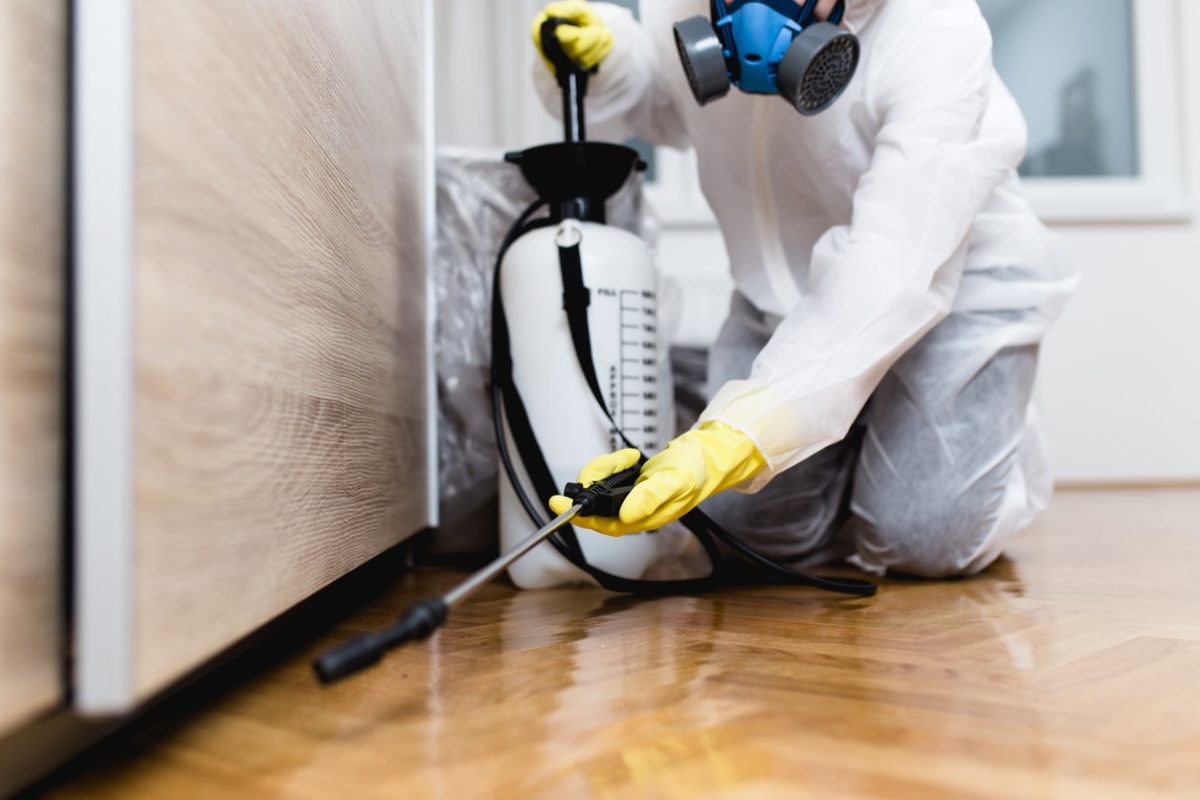Guaranteed Pest Control with results you can count on.
Eco-Friendly Insect Control Approaches for Taking Care Of Wildlife in Urban Locations
Urban areas usually discover themselves at the intersection of human task and wildlife, causing one-of-a-kind difficulties in parasite monitoring. Green techniques highlight sustainable conjunction, utilizing strategies such as habitat alteration and all-natural repellents to mitigate human-wildlife conflicts. These approaches not only secure the environment yet likewise enhance area involvement in wild animals management. As city populaces proceed to grow, comprehending the characteristics of wild animals interactions comes to be progressively essential. What ingenious approaches can be executed to ensure both environmental equilibrium and metropolitan safety and security? Exploring this inquiry exposes a compelling landscape of prospective options.
Comprehending Urban Wild Animals Characteristics
Recognizing Urban Wildlife Characteristics is essential for developing effective and eco-friendly pest control strategies. Urban areas are significantly ending up being environments for different wild animals types, driven by variables such as habitat fragmentation, food availability, and human encroachment. Acknowledging these characteristics enables a nuanced method to pest administration that lines up with ecological principles.
Urban wild animals often consists of types such as raccoons, squirrels, and birds, which adapt to city environments, locating specific niches in green rooms, parks, and even houses. Their presence can lead to conflicts with people, particularly when they exploit human sources for food and shelter. Understanding the actions and environmental duties of these types educates strategies that minimize adverse interactions while promoting biodiversity.
In addition, acknowledging the interdependencies within urban ecological communities helps in determining essential areas for habitat conservation and reconstruction. This knowledge contributes to the growth of integrated bug management (IPM) strategies that consider the eco-friendly balance, thereby minimizing reliance on unsafe chemicals. By cultivating conjunction in between human beings and urban wildlife, cities can create healthier environments that benefit both locals and regional ecological communities, paving the method for lasting city living.
Natural Repellents and Deterrents
Natural repellents and deterrents supply a sustainable choice to traditional parasite control approaches by taking advantage of the power of nature to keep unwanted species away. These environment-friendly solutions typically utilize plant-based active ingredients, vital oils, and other normally taking place compounds that prevent insects without hurting the atmosphere.
One reliable all-natural repellent is peppermint oil, which is known to push back rodents and pests. Its strong fragrance is undesirable to several parasites, making it a preferred selection for city setups. Likewise, vinegar and citrus peels can function as deterrents, as their strong odors are usually unattractive to different wild animals.
Furthermore, diatomaceous earth is an all-natural powder that can be spread in areas prone to insect activity, properly drying out and hindering insects without posing risks to non-target varieties. In addition, garlic sprays and neem oil are identified for their ability to fend off a wide variety of parasites, consisting of both bugs and bigger wildlife.
Carrying out these natural repellents not only minimizes reliance on chemical pesticides but additionally advertises a much healthier city ecosystem, fostering a more balanced coexistence in between people and wild animals. By using these strategies, urban locations can navigate to these guys effectively handle parasite populations while reducing ecological influence.
Habitat Alteration Methods
Reliable environment modification techniques play a critical role in sustainable bug monitoring by altering the setting to make it much less helpful to pest problems. By recognizing the ecological dynamics of urban areas, homeowner can execute critical alterations that discourage insects while advertising biodiversity.
(Termite Control)One main technique includes preserving correct hygiene. This includes normal waste elimination, securing trash can, and eliminating standing water to decrease reproducing websites for insects and rodents. Furthermore, landscape design practices such as selecting indigenous plants can boost ecological balance, providing environments for useful microorganisms while reducing sources for pests.
Another essential approach is to seal entry factors in structures. Evaluating and fixing fractures in foundations, wall surfaces, and home windows can dramatically lower parasite accessibility. Creating physical obstacles, such as fencings or plant buffers, can inhibit wild animals motion into human-inhabited areas.
Integrated Pest Monitoring Practices
Structure upon environment adjustment techniques, incorporated insect management (IPM) practices supply an alternative method to controlling insect populaces while reducing ecological effect. IPM combines numerous techniques, consisting of biological, social, mechanical, and chemical controls, to accomplish reliable bug management.
Organic control involves the intro of natural killers or parasites to lower insect populaces. Cultural techniques, such as crop turning and cleanliness, disrupt pest life cycles and decrease their environments - Pest control service. Mechanical controls, like catches and barriers, provide prompt remedy for insect stress without chemical treatment
Chemical controls are utilized as a last hope, concentrating on targeted applications that restrict damage to non-target species and the setting. The option of eco-friendly pesticides, when required, is essential to the IPM framework. In addition, monitoring parasite populations and examining prospective damages assists notify decision-making, guaranteeing that interventions are timely and efficient.
Area Involvement and Education

(Wildlife removal Port Charlotte)Workshops and educational sessions can equip citizens with expertise about native types, environment conservation, and effective non-toxic parasite monitoring techniques. Partnership with institutions, neighborhood companies, and government agencies even more improves instructional outreach, making certain that important info gets to varied target markets.
Moreover, community-led efforts, such as community clean-up days and habitat repair jobs, not only advertise biodiversity yet likewise strengthen neighborhood ties. Pest control service. By motivating homeowners to share their experiences and monitorings, areas can create targeted approaches that address specific local parasite concerns
Including responses from homeowners right into bug administration prepares allows a more responsive and flexible strategy to wild animals difficulties. Eventually, informed and involved areas are crucial to accomplishing long-lasting success in environment-friendly bug control, leading to much healthier metropolitan atmospheres that respect both human and ecological demands.

Final Thought
In final thought, green parasite control comes close to deal lasting remedies for handling metropolitan wildlife. By prioritizing environment adjustment, making use of all-natural repellents, and applying integrated bug management techniques, communities can cultivate an unified conjunction with local fauna.